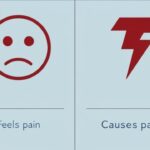Impatient describes how a person feels when waiting for something. People often feel restless, frustrated, or anxious if things take too long. These feelings appear in daily life, like waiting for a turn, standing in line, or finishing a task slowly.
Inpatient refers to someone staying in a hospital for treatment. Doctors watch patients carefully while they recover. Hospitals keep them under observation to make sure they get proper care. This term relates only to medical care and not everyday emotions.
Understanding the difference helps people communicate clearly. Emotional reactions like frustration are very different from hospital admission. Using words correctly avoids confusion and shows respect for language rules. It also makes conversations and writing more professional and precise.
Exploring the Definition of “Impatient”
Impatient shows a person’s feelings when they cannot wait calmly. People may feel frustrated, restless, or anxious in slow situations. These emotions appear during delays, long lines, or waiting for something important, making it hard to stay calm and patient.
This feeling affects behavior and mood. People may tap their feet, sigh, or act quickly without thinking. Learning to control restlessness helps handle waiting times better and keeps emotions steady. It also improves how people act in school, home, or daily activities.
Common Triggers for Impatience:
- Emotional Response: Shows feelings of restlessness, frustration, or anxiety when waiting for something to happen.
- Everyday Situations: Appears during delays, long lines, or slow tasks, making it hard to stay calm.
- Behavior Impact: Can affect actions and mood, causing tapping, sighing, or acting quickly without thinking.
The Emotional Implications of Being Impatient
Feeling impatient can affect a person’s emotions and behavior. People may become frustrated, irritable, or anxious when things move slowly. These emotions can make it harder to focus, listen, or enjoy activities, even during small delays in daily life.
Strong impatience may also influence relationships and decisions. People might speak sharply, act quickly without thinking, or show visible restlessness. Learning to manage these emotions helps keep calm, make better choices, and maintain peaceful interactions at home, school, or with friends.
Common Expressions Featuring “Impatient”

- Impatient waiting: Feeling restless or frustrated while waiting, for example, “She grew impatient waiting for her results.”
- Impatient with someone: Showing frustration toward a person’s actions, like “He became impatient with his slow helper.”
- Impatient at something: Feeling irritated by a situation, such as “She was impatient at the slow progress of the task.”
The Linguistic Roots of “Impatient”
The word impatient comes from Latin roots. The part “in-” means not, and “patiens” means able to endure. Together, it describes someone who cannot wait calmly or handle delays without feeling frustrated or uneasy.
Understanding the origin helps people remember its meaning. This background links language and emotions, showing that impatience is about restlessness and eagerness. Knowing roots also improves reading, speaking, and writing, making it easier to use words correctly in everyday life.
- Origin: Comes from Latin roots, showing its long history in language.
- Prefix “in-”: Means not, indicating the opposite of patience.
- Root “patiens”: Means able to endure or suffer, relating to waiting calmly.
- Meaning Evolution: Combines to describe someone who cannot wait without frustration.
- Related Words: Includes impatience (the state of feeling restless) and patient (able to wait calmly).
The Meaning and Usage of “Inpatient”
An inpatient is a person who stays in a hospital for care that lasts at least one night. Doctors watch them closely to ensure proper treatment. This term is only used for people needing medical attention over a longer period.
Hospitals keep inpatients under careful observation to monitor recovery and prevent complications. Unlike short visits, these patients receive continuous care. Understanding this word helps people use it correctly in healthcare conversations, making communication about hospital stays clear and professional.
See also : Involved or Envolved – Which One Is Correct?
Clarity in Context: “Impatient” and “Inpatient” in Sentences
- Impatient Example 1: “She grew impatient while waiting for her turn in line.”
- Impatient Example 2: “The children became restless and impatient during the long lesson.”
- Inpatient Example 1: “The hospital admitted him as an inpatient after the surgery.”
- Inpatient Example 2: “Patients in the inpatient ward receive daily monitoring and care.”
- Key Difference: Impatient relates to emotions, while inpatient refers to hospital care or medical treatment.
Identifying “Impatient” in Everyday Language
- At Work: Feeling restless while waiting for emails or project feedback.
- Social Situations: Becoming frustrated when friends or family take too long.
- Personal Tasks: Growing irritable when chores or activities take more time than expected.
- Body Language: Tapping feet, checking the clock, or sighing shows impatience.
- Behavior: Speaking quickly or interrupting others reflects frustration and difficulty waiting calmly.
Understanding “Inpatient” Through Examples
Doctors often place patients in a hospital as inpatients after surgery or illness. These people receive care and monitoring every day. Staying in the hospital ensures they recover safely and get all the treatments they need without leaving too soon.
Some inpatients remain in special hospital wards for serious conditions. Nurses and doctors watch their progress, give medication, and check vital signs regularly. This careful attention helps prevent problems and supports faster, safer recovery during the hospital stay.
- Surgery Recovery: A patient stays in the hospital as an inpatient after major surgery.
- Serious Illness: People with serious conditions remain under observation for several days.
- Special Wards: Inpatients are placed in dedicated hospital units for closer monitoring.
- Continuous Care: Nurses and doctors provide daily care and check vital signs regularly.
- Difference from Outpatient: Unlike short visits, inpatients stay overnight to receive complete treatment and recovery support.
See also : Input vs Imput: Which One Is Correct?
Remembering the Difference: Tips and Tricks

A good way to remember the difference is to link emotions with waiting and hospitals with care. People feel restless or frustrated when delays happen, while others stay in a hospital bed for treatment and observation.
Using mnemonics helps too. Think of frustration for waiting and hospital stay for medical care. This makes words easier to recall and helps speak or write correctly. Paying attention to context ensures clear communication in school, home, or everyday conversations.
- Link Emotions: Connect frustration or restlessness to waiting situations.
- Hospital Care: Remember inpatient relates to medical attention and overnight stays.
- Mnemonic Device: Think “Impatient = hurry, Inpatient = hospital bed” to recall easily.
- Context Clues: Focus on the situation to choose the right word.
- Practice Usage: Use both words in sentences to strengthen understanding and memory.
Common Misconceptions and Errors to Avoid
Many people confuse emotions with hospital care. Using words about feeling restless in a hospital situation is wrong. Mixing these terms can make communication unclear and cause others to misunderstand instructions, stories, or explanations.
Always focus on context to avoid mistakes. Link frustration or eagerness to waiting and medical attention to staying in a hospital. Correct usage helps conversations and writing stay clear, professional, and easy for everyone to understand.
Conclusion
Understanding the difference between emotions and hospital care helps people communicate clearly. Feeling restless or frustrated is very different from staying in a hospital for treatment. Using these words correctly makes speaking and writing easier and more precise.
Knowing these distinctions improves communication at school, home, and other places. Linking frustration to waiting and medical attention to hospital stays helps avoid mistakes. Clear understanding of words supports better writing, correct speech, and confident use of language in daily life.
Faqs
What is the difference between inpatient and impatient?
Impatient shows frustration or restlessness when waiting, while inpatient refers to a hospital patient staying overnight for medical care or treatment.
What’s the difference between outpatient and inpatient?
Outpatients receive medical care without staying overnight, while inpatients remain in a hospital for continuous monitoring and treatment.
What does it mean to be inpatient?
Being an inpatient means staying in a hospital for at least one night to get medical attention, monitoring, and proper treatment.
What does impatient mean in a hospital?
Impatient in a hospital describes a person feeling restless, frustrated, or eager while waiting for appointments, treatment, or medical results.

Join Bibcia on a journey to master English grammar. Discover easy lessons, writing tips, and practical examples designed to make learning grammar simple and effective.










